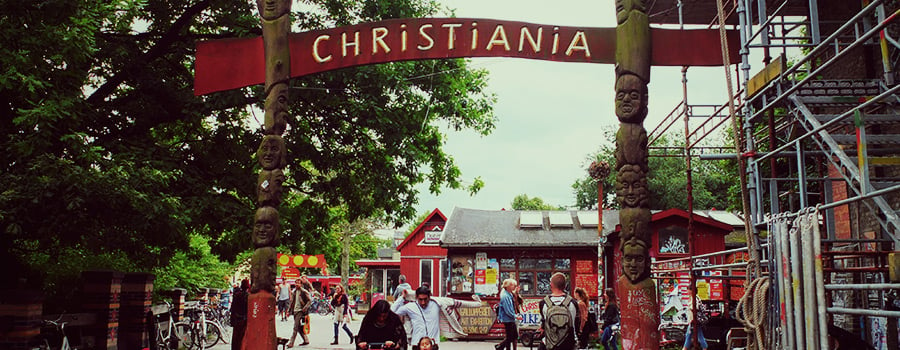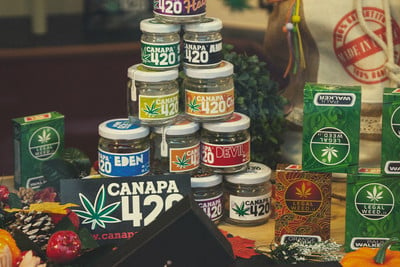.

Medical Cannabis Trial Program Approved In Denmark
Denmark is the latest country to allow cannabis for medical patients. This will apply only to certain illnesses, but could signal a pro-pot trend seen elsewhere in Europe. Let's look at the current attitudes toward cannabis in Denmark.
Denmark is a small but wealthy nation in the heart of Scandinavia. It is frequently found near the top of many lists on the world's happiest, healthiest, and safest countries. Nordic model economics have contributed to high living standards and relatively stable politics in Denmark. As a progressive vanguard for many issues, they also maintain higher standards of civil rights and political freedoms than most countries. 2018 may be the year they finally come to grips with freedom for cannabis.
From 1st January, 2018 onward, medical cannabis products will be available for Danish patients. This follows a parliamentary vote in December 2017 which approved a four-year trial for access to medical cannabis. A trend of legalizing medicinal cannabis is sweeping through Europe with Germany, Italy, Luxembourg, the Netherlands, and the Czech Republic among recent examples. However, a cautious approach has prevailed in a time when Denmark is having broader conversations about recreational cannabis. Let's take a look at what's happening in Denmark.
CANNABIS LAWS IN DENMARK
Cannabis is illegal to buy, sell, consume or cultivate in Denmark. If you are found by police with 9.9 grams or less of cannabis, you could face a fine of up to 2,000 Danish krone. Possess any more than that and you could be looking at several years of jail time. In spite of the harsh clampdown, Danes continue to consume cannabis and advocate for legalizing its sale. Polls conducted in 2016 for TV2 suggest a country split down the middle on this issue. 43% support legalization while 43% are opposed, with 3% undecided and 11% supporting neither approach.

FREETOWN CHRISTIANIA
Then there is the case of "Freetown Christiania" in Copenhagen's city centre. 84 acres of abandoned military land was claimed by squatters in the 1970s. They declared it a sovereign micro-nation organised through anarchist politics. At the risk of over-simplifying, nothing is forbidden by law in Christiania until there is consensus among residents. There are some prohibitions, such as those against violence, bikers' colours, and hard drugs, but not against cannabis. This led to a so-called "Green Light District" springing up in Christiania where Danes and tourists alike could openly purchase cannabis.
As far as the Danish government was concerned, Danish laws still applied here because the land belonged to them. Decades of dispute over the legal status of Christiania reached a compromise. From 2012 on, residents have paid for the land at below-market prices. Their community continues to flourish and attract tourism. It also continues to sell cannabis openly in the Green Light District. This is sporadically tolerated by the Danish police.
MEDICAL CANNABIS
A new age neighbourhood tolerating the sale of cannabis is one thing. What does it take for an entire nation to pass laws affirming the rights of cannabis users? The argument for medical cannabis has proven more popular among the Danish public. With a growing body of evidence for the medical applications of cannabinoids, the plight of patients in need provokes sympathy. Concerns were raised about supplying the country with medical cannabis through problematic importation. Canadian company Aurora Cannabis may hold the solution, with plans to establish "Europe's largest" grow house in the Danish city of Odense. Partnering with Danish firm Alfred Pedersen & Søn, it is expected to produce 120,000 kilograms of cannabis annually.
SPECIFIC MEDICINES
So far, the only cannabis medicines approved are pharmaceutical drugs with synthetic cannabinoids such as Sativex, Marinol, and Nabilone. Prescription has only been permitted for treatment of multiple sclerosis, spinal injury, chronic pain, and the effects of chemotherapy. Under this four-year trial, the scope for treatments and medicines may be broadened. Doctors will now be able to prescribe cannabis products for other conditions. They will need to make a persuasive case that such treatment is "professionally justified". Some doctors are hesitant to even try. If enough successful applications emerge over the next four years, the proliferation of other medicines, oils, and even buds of the cannabis plants themselves may boom.
WHAT DOES THE FUTURE HOLD?
One way or another, it seems Denmark will enter the cultivation game with this Odense project. This has the backing of Canada, which is set to establish a completely regulated cannabis industry in summer 2018. With more countries coming around to medical cannabis, will the tide turn for regulating recreational cannabis too? In Denmark's case, there's a strong possibility urban voters will support this. Municipal politicians in Copenhagen want to pilot a handful of Dutch-style coffeeshops. These proposals have been denied approval by the Danish government. Given the city's experience with Christiania, the idea of isolating the cannabis market from criminal elements is compelling. Be sure to watch what happens in the country known for taking a progressive stand. Developments here could end up showing the way forward elsewhere.












































